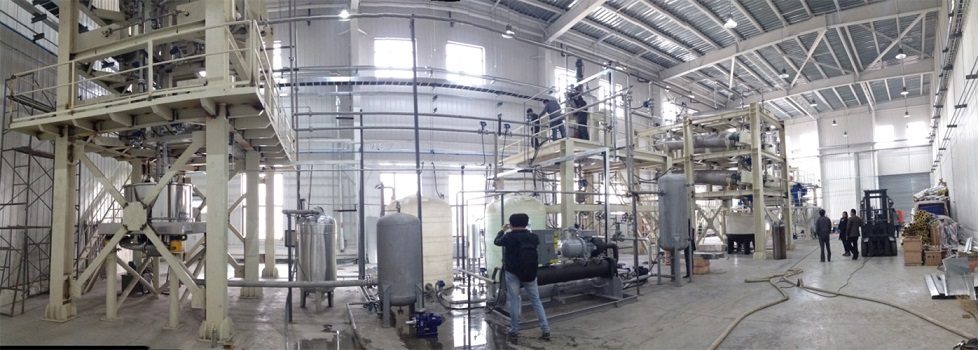West needs new tech as more nations reject being dump sites

The kilotons-scale demonstration plant for waste PET degradation Photo: courtesy of Chinese Academy of Sciences
Western nations, who are scrabbling for a way to handle their solid waste, especially plastic waste, since China refused to be their dumping ground in early 2018, can turn to the nation again for new technology in plastic waste recycling.
Scientists from Beijing Key Laboratory of Ionic Liquids and Clean Process at the Institute of Process Engineering of Chinese Academy of Sciences, led by director of the institute Zhang Suojiang, have developed a new technology to recycle polyethylene terephthalate (PET), which can effectively reduce production costs and energy consumption.
Established in 2015, the kiloton-scale demonstration plant uses functional ionic liquids as the catalyst, which could completely degrade waste PET, reduce degradation duration by 82 percent, cut the use of fresh water by 75 percent and shorten the whole process by 30 percent, according to a press release the institute sent to the Global Times on Thursday.
"The demonstration plant, although not widely used in China over economic concerns, was built after 10 years' research and development, and it offers the ultimate solution to degrade PET waste," Lü Xingmei, a principal investigator at the institute, told the Global Times on Thursday.
A type of thermoplastic polyester, PET has wide applications in electronic devices, films, fibers and food packaging.
The annual global consumption of PET exceeds 50 million tons.
Currently high-temperature incinerators are used to degrade PET waste, and those that are not fully degraded will have to wait for natural degradation that may take hundreds of years, Lü said.
"New technology is urgently needed in many Western nations," said Lü, adding that more developing countries may no longer agree to be garbage dumping grounds.
Some European companies have reached the institute for technology exchange. The UK-based Green Lizard Technologies company has signed a memorandum of understanding with the institute in October, and planned to build an industrial plant to degrade their PET waste.
Western countries which will turn to China for the recycling of PET waste shows that they have to degrade their own garbage, and also indicates that China would like to cooperate with them in dealing with global environmental issues, Lü said.
Chinese scientists plan to establish a 10-kiloton-scale plant to promote the technology nationwide.
China started to ban imports of 24 types of solid waste, including plastics, unsorted scrap paper, discarded textiles and vanadium slag from January.
Thailand announced a ban on foreign plastic waste in 2021, and Vietnam and Malaysia have also taken measures to crack down on imports of foreign garbage, the Telegraph reported in October. (GLOBAL TIMES)
Media Contact:
LI Xiangyu
International Cooperation Office, Institute of Process Engineering, Chinese Academy of Sciences, Beijing 100190, P. R. China.
E-mail: xiangyuli@ipe.ac.cn
Tel: 86-10-62551358